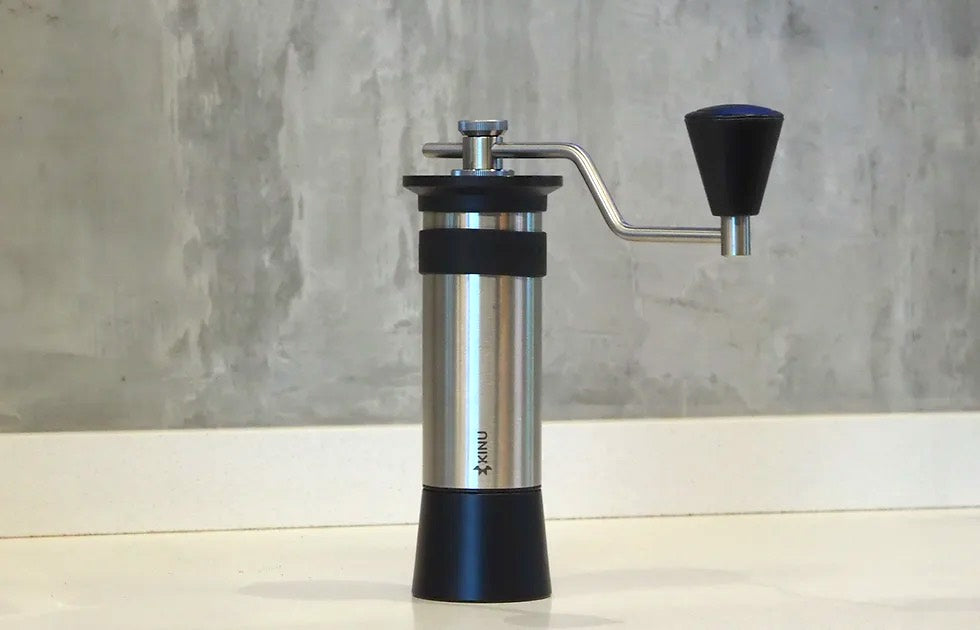For many of us, coffee is an indispensable part of the day, it's that cup or three that gets us going in the morning, and several more to keep our focus during long hours at work. Yet, the journey of coffee, from plantations across the globe to our cups, many don't know its history.
The backbone of your morning routine is the coffee industry's 125 million workers, including 12.5 million dedicated farmers. Their tireless efforts are often rewarded with minimal pay, insufficient to cover even their basic needs. It's time to acknowledge and compensate their invaluable labor fairly.
As coffee becomes more popular than ever, it's important to remember that behind every cup of coffee are the workers who labored to grow, pick, and roast the beans. In recent years, there has been increasing public pressure on the coffee industry to improve sustainability and ethical worker treatment. But what does that mean, exactly? Let's break it down.
Why does sustainability matter?
The simple answer is that if we want to keep drinking delicious coffee in the future, we need to make sure that the industry is sustainable. This involves backing farmers who adopt sustainable practices and enhancing worker conditions throughout the coffee supply chain. Equally important is our commitment to reducing our environmental footprint.
What does it mean for coffee to be sustainable?
Understanding your coffee's origins is vital for sustainability. This includes knowing how the beans are cultivated, the eco-friendly methods like organic farming and water conservation used, the process they undergo from harvest to processing, and the approach to roasting.
In recent years, the coffee industry has seen significant advancements in sustainability. However, there remains a considerable gap for further improvement. Many growers continue to rely on pesticides, leading to pollution in our waterways. Simultaneously, while an increasing number of roasters are turning to renewable energy, the majority still operate primarily on fossil fuels.
In the context of coffee, sustainability covers three areas: economic, ensuring fair pay and growth; social, promoting equitable treatment and community advancement; and environmental, focusing on minimizing the impact on the planet.
Economic sustainability - Worker Pay
The underpayment of coffee growers is a significant issue, contributing to over 5.5 million coffee farmers living in poverty according to Rushton. This situation stems from the low prices raw coffee beans fetch on the global market.
Promoting sustainability in the coffee sector requires ensuring that small-scale farmers are justly compensated for their beans and have access to both the essential resources and the latest knowledge necessary for cultivating high-quality coffee, which in turn supports their economic well-being.
Social sustainability - Worker's rights
In coffee-producing countries, extreme poverty and inadequate social infrastructure are widespread. This situation renders coffee producers highly vulnerable to the market's volatility. The sustainability of the coffee industry is closely tied to the well-being of communities globally, as unstable coffee prices directly influence access to education, housing, healthcare, and more. Additionally, the isolation of many farmers exacerbates the challenge of affording necessary tools, and transportation, especially when prices decline.
In addition, child labor is still widespread in some countries; it's estimated that over two million children are involved in growing and harvesting coffee beans each year. According to Dr. Chen, no single organism can solve these issues. We have to act collectively to make a change
Environmental sustainability
Coffee farmers are increasingly vulnerable to the impacts of climate change, with extreme weather conditions like droughts damaging their crops. They also face threats from a variety of pests and diseases that can devastate plantations. Compounding these challenges is the difficulty in accessing necessary resources, such as organic fertilizers and disease-resistant seeds, and securing financing to invest in innovative and sustainable practices to protect and enhance their coffee production.
Environmental sustainability plays a pivotal role in preserving coffee-growing territories. This comprehensive approach includes the prudent management of water resources, the augmentation of local flora and fauna diversity, and the implementation of agricultural techniques that minimize harm to the environment. Equally important is the support of enterprises that uphold high standards of ethical treatment towards their workforce, ensuring fair wages, safe working conditions, and respect for their rights.
Trading Coffee
The C price is complex, shaped by global supply and demand as well as future coffee-based financial derivatives. At first glance, this system seems fair. However, since farmers' production costs are unaffected by C price fluctuations, and their profit margins are already slim, any dip in the C price can push them into financial distress, even with a significant premium.
Small farmers are particularly vulnerable due to their exposure to currency exchange rates and inability to hedge against market fluctuations, unlike larger supply chain players. The size of coffee future contracts far exceeds their production, making it financially unattainable and leading to investment hesitancy in farm improvements.
Direct Trade
An increasingly popular approach in the coffee industry is for importers to make direct purchasing relationships with coffee producers. This direct line not only helps transparency between the two parties but also significantly increase revenues of the coffee farmers. Some importers are even sharing the payment details publicly.
However, not all direct trade relationships are created equal. Some roasters may only buy small quantities of coffee from a grower, which doesn't provide much stability for the farmer. The best buying practice is for roasters to be recurring customers as this allows growers to plan for the future and invest in sustainable practices.
The Problem with Fair Trade
Fair Trade is a well-intentioned program offering growers a safety net: a guaranteed minimum price for their beans, but only if they stick to strict fair labor and environmental guidelines. The catch? This fixed price, while stable, doesn't flex with the market's highs and lows. In booming markets, growers could have earned more, making Fair Trade's promise a double-edged sword.
A New Cooperative Model
To improve the lives of coffee farmers, the cooperative model could be revised. Studies have shown a call for a renewed commitment to existing relationships with small-scale producer cooperatives and their communities. This new model of cooperatives should will link governments, small-scale farmer organizations, civil society organizations certification agencies, and specialty coffee industry together. It's only with a collective effort that we can achieve better outcomes for the producers.
How can you make sure your cup of coffee is sustainable?
The most effective strategy to ensure your coffee doesn't harm the planet or exploit farmers is by supporting roasters who are open about where and how they get their beans and that they pay fair wages. It's not the easiest route since digging into their sourcing practices takes time, and let's be honest, most roasters are reluctant to disclose their prices.
FOB vs Farmgate
If you ask your roaster, and they give you a price, there is another question to ask them! Coffee prices can vary depending on where the beans are purchased. Farmgate prices refer to the price that growers receive for their coffee beans, while FOB prices reflect the cost of the beans when they are sold at the port of export.
In the coffee market, prices mainly fall into two categories: Farmgate and FOB. The latter, standing for Freight on Board, encompasses not just the cost of the beans but also transportation and related fees paid by buyers to exporters.
Farmgate, on the other hand, refers to the price that coffee producers receive from their sale. For buyers aiming to support ethical trade, recognizing and acting upon the principles of Farmgate ensures producers are adequately rewarded for their contributions.
If you want to be sure that your coffee is ethical, take a look at Nucleus Coffee!
Conclusion
The next time you reach for a cup of coffee, take a moment to think about where it came from and what went into making it possible for you to enjoy it. By choosing sustainably grown beans and supporting companies that prioritize ethical treatment of workers, we can all help make the global coffee industry more sustainable—and preserve our precious coffee long into the future.










Comments
There are no comments.
Your comment